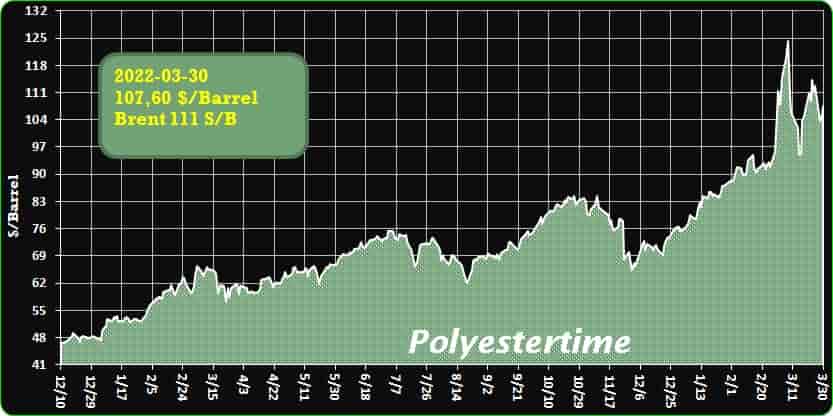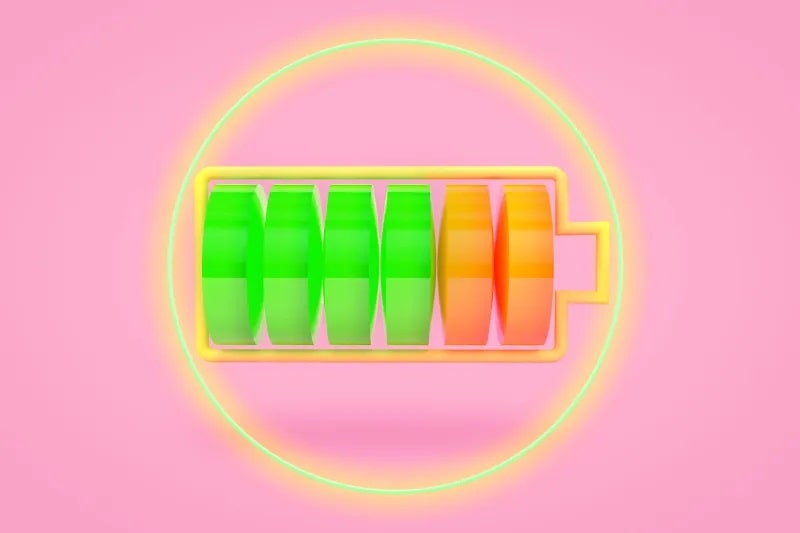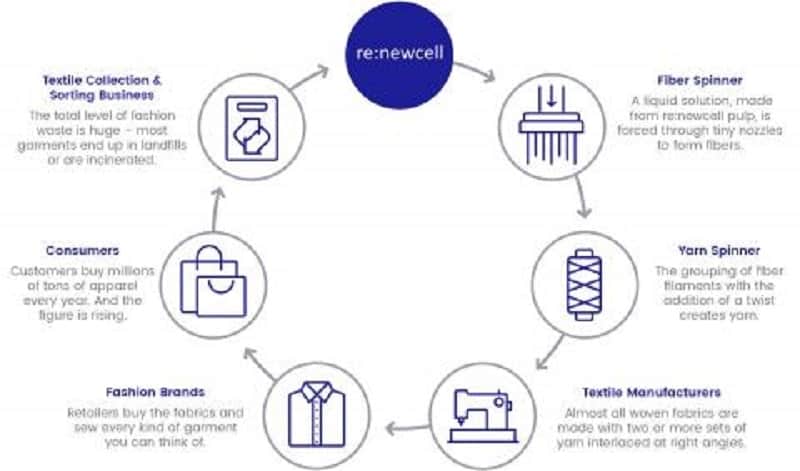Rechargeable-Batteries – Circular-Textile-Fiber 30-03-2022 - Arhive
Rechargeable-Batteries – Circular-Textile-Fiber
Crude Oil Prices Trend

-How Artificial Intelligence Could Give Us ‘Indestructible’ Rechargeable Batteries
- Scientists have designed an AI that studies battery composition.
- By examining tons of images, artificial intelligence can analyze materials.
- The hope is to use this imagery to help design longer-lasting batteries.
Scientists say they can use artificial intelligence to analyze atomic-level images of rechargeable batteries in a quest to figure out why they wear out over time. By studying materials that compose the battery extremely close up, they hope to streamline the process of studying and improving battery designs—which could eventually lead to an “indestructible” battery. Rechargeable-Batteries – Circular-Textile-Fiber
Specifically, the researchers looked at a type of rechargeable lithium-ion battery called “lithium iron phosphate” (LFP), which is fast becoming a popular option among electric car manufacturers due to its relatively low cost, low toxicity, and long lifespan. Because LFP electrodes do not contain cobalt or nickel, which are common (but difficult to procure) elements in many commercially-available batteries, they were the perfect medium for study. Improving outcomes for LFP batteries would probably accelerate the electric car industry, the scientists say, because they don’t require chemicals with constrained supply chains.
But to improve these batteries, you have to butt up against the laws of physics and chemistry, themselves. “Constitutive laws underlie most physical processes in nature. However, learning such equations in heterogeneous solids (for example, due to phase separation) is challenging. One such relationship is between composition and eigenstrain, which governs the chemo-mechanical expansion in solids,” the researchers explain in their paper, published in the peer-reviewed journal Nature Materials last month.
However to enhance these batteries, you must face the laws of physics and chemistry, themselves. “Constitutive legal guidelines underlie most bodily processes in nature. Nonetheless, studying such equations in heterogeneous solids (eg as a result of part separation) is difficult. One such relationship is between composition and eigenstrain, which governs chemical-mechanical growth in solids,” the researchers clarify of their paper. paperprinted within the peer-reviewed journal Nature’s Supplies final month. Rechargeable-Batteries – Circular-Textile-Fiber
In different phrases, the efficiency of any materials comes all the way down to each its chemistry and its bodily interactions on the atomic scale. However the smaller you’re, the tougher it’s to foretell how the fabric will behave. Understanding these interactions may theoretically assist us obtain an “indestructible” battery, William Chueh, an affiliate professor of supplies science and engineering at Stanford College and senior writer of the paper, posits in a prepared statement from Stanford.

-Renewcell and Fiber Producer Daiwabo Sign Letter of Intent for Circular Textile Fiber Collaboration
The Swedish textile-to-textile recycling innovator Renewcell has today signed a Letter of Intent with Daiwabo Rayon Co. Ltd., a leading Japanese cellulosic fiber producer, concerning a long-term commercial collaboration around man-made cellulosic fiber production. Rechargeable-Batteries – Circular-Textile-Fiber
The agreement affirms the two companies’ intent to work together to supply textile fibers made using Circulose®, Renewcell’s 100% recycled textile raw material, to global fashion brands in the coming years. The agreement has been facilitated by Ekman Group, Renewcell’s exclusive global trading partner.
“I am excited to announce an agreement with such a highly regarded company as Daiwabo. Daiwabo is a true leader in viscose fiber production that has excellent long-standing relations with the biggest brands in Asia and the world. It reflects very well on the work done by our team to ensure the quality and maximize the potential of Circulose® as a feedstock for circular textile fibers.” comments Patrik Lundström, CEO of Renewcell.
“Our announcement of an agreement with Renewcell, the most advanced textile recycling innovator in the world, marks the first step in jointly producing our functional regenerated cellulose fiber and products using the recycled textile raw material Circulose®. We are very excited about our partnership and feel the weight of our responsibility to supply products that are kind to people and the earth.” comments Mr. Fukushima, President of Daiwabo Rayon.
The Letter of Intent signed between Renewcell and Daiwabo provides the framework for an upcoming offtake agreement between the parties.
The future legally binding offtake agreement will set out commercial terms for the delivery of certain volumes of Circulose® dissolving pulp to Daiwabo over a number of years. Rechargeable-Batteries – Circular-Textile-Fiber
Daiwabo intends to use Circulose® as feedstock in the production of man-made cellulosic fibers to be supplied to textile manufacturers and fashion brands

-How Artificial-Intelligence Could Give Us ‘Indestructible’ Rechargeable-Batteries
–Renewcell and Fiber-Producer-Daiwabo Sign Letter of Intent for Circular-Textile-Fiber-Collaboration
–Braskem and Sojitz to collaborate on scaling bioMEG-technology
–Quantafuel announces Proof of Concept for its Skive chemical-recycling-plant
–Israel-Technion Researchers Develop Conductive Biopolymers Using Protein
Rechargeable-Batteries – Circular-Textile-Fiber
